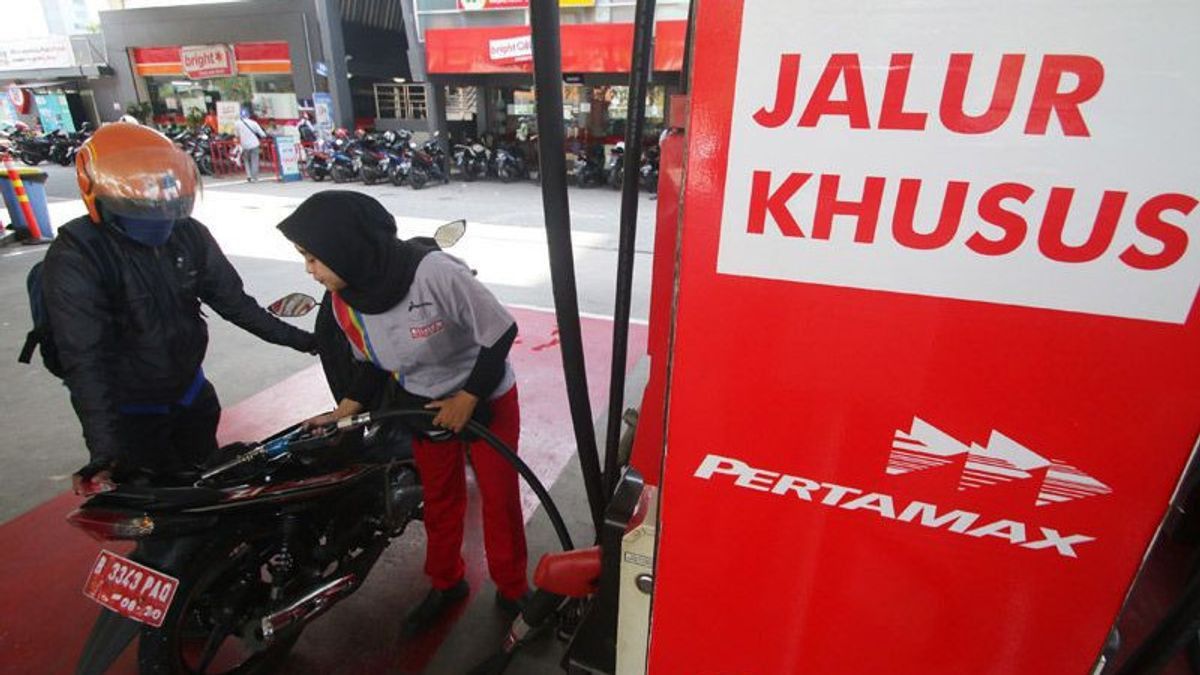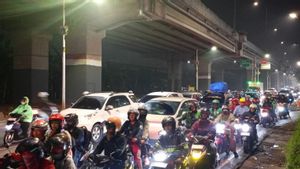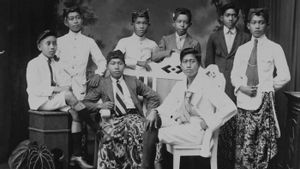JAKARTA - The option to increase the price of fuel oil (BBM) is not an easy decision. President Susilo Bambang Yudhoyono (SBY) never felt it. He has raised the price of fuel twice in (March and October) 2005. All Indonesian people also think that the government is insensitive. The Indonesian people are devastated.
Moreover, the increase in fuel has an impact on price increases in other sectors. On the one hand, the policy helps the economy. On the other hand, the increase in fuel prices has increased the number of poor people in Indonesia.
SBY's leadership in the early days of government was not easy. There are many things that need to be addressed from the previous government period, which was led by President Megawati Soekarnoputri. Economics, for example. At that time the nation's economic condition was unstable. The world oil price which reached 150 US dollars per barrel was the cause.
Megawati was adamant that she did not want to increase fuel prices, even until the end of her term. The impact was felt directly by the new government. SBY also tried to attach the body. He as a leader feels responsible. Solutions were also tried to brew in the hope that there would be a way out.

The Indonesian government finally has two options that are relatively equal in weight. First, the government did not increase the price of fuel with a high risk. Second, the government raises the price of fuel with a note that those who have the power to participate in providing compensation to lower economic groups.
In practice, the first option is not the focus of SBY. He thinks that the Indonesian government will not be strong if it does not increase fuel prices. Moreover, world oil prices have doubled. As a result, the second option was forced to be chosen by him.
The government also raised fuel prices twice in March and October 2005. The most noticeable increase was the premium in March from Rp1,810 to Rp2,400 per liter. In October, the premium was from 2,400 to Rp 4,500 per liter.
“The increase in fuel prices is unavoidable, it has become a necessity. So far, the selling price of fuel purchased by the public is not the actual price, because part of it is borne by the government by providing subsidies. When world oil prices rise, like now, subsidies also swell. The budget for this subsidy? This year is estimated at Rp 53.4 trillion? So it's too heavy a burden for the country."
“Stopping subsidies for fuel means the state will stop helping to 'pay' part of the price of fuel that is used by the general public. The burden of the fuel price shifts back to the responsibility of the people who buy it. Whoever buys, must pay for it himself. The selling price of fuel has also gone up, not to increase Pertamina's profit as a seller, but as a result of reduced subsidies,” wrote Tempo Magazine's report on SBY's Dilemma (2005).
Poverty Rates RiseThe government's efforts to raise fuel prices are considered an instant solution. The increase in fuel prices is only to ease the deficit in the State Budget and Revenue (APBN). While the consequences are quite large, mainly from the two times the price of fuel has been increased.
Many Indonesian people languish. An increase in the price of fuel causes the price of other goods to increase. Those who have a low daily income are at risk of falling into poverty.
The government had answered this problem by providing direct cash assistance to the lower class people. The assistance is Rp. 100,000 per month and can be taken every three months. However, the distribution is not free from problems. The distribution is not right on target. Even many who do not fall into the category of poor receive assistance. Moreover, the distribution is often not timely.
“This amount of funds can only be disbursed after several months of rising fuel prices, so it is not surprising that until early September not all compensation funds could be fully distributed to the poor. In the third week of September, according to the government, most of the compensation funds have been disbursed, and even then, because the government plans to raise fuel prices again in early October.”

"For the government, the completion of the distribution of compensation funds can be used as one of the justifications needed to increase the fuel price this time. If there is no plan to increase fuel prices for the second volume in early October, we can be sure that the funds will never be fully distributed to the poor until the end of 2005," explained Fahmi Radhi in the book Pro-People's Economic Policy (2008).
The compensation given by the government is considered insignificant. The prices of other goods that also increase become the estuary. The problem then made the Indonesian people who fell into poverty increased.
This condition continued for the following year. Many Micro, Small and Medium Enterprises (MSMEs) have gone out of business due to the increase in fuel prices. Like it or not, layoffs are done. The results are predictable. Unemployment everywhere.

“The price increase in October 2005 is considered a trigger for the increase in the number of poor people. Data from the Central Bureau of Statistics (BPS) shows that up to March 2006, the number of poor people in Indonesia was no less than 39.05 million. Compared to the poor population in February 2005, which was 35.1 million. A year later the number of poor people increased by 3.95 million.”
“This amount uses the BPS poverty standard. However, when using the World Bank version of the poverty standard of (amount of income) 2 US dollars per capita per day, the number of poor people in Indonesia is actually very large, reaching 110 million people," concluded the National Biofuel Development Team in the book Biofuel: Biofuel ( 2008).
The English, Chinese, Japanese, Arabic, and French versions are automatically generated by the AI. So there may still be inaccuracies in translating, please always see Indonesian as our main language. (system supported by DigitalSiber.id)








